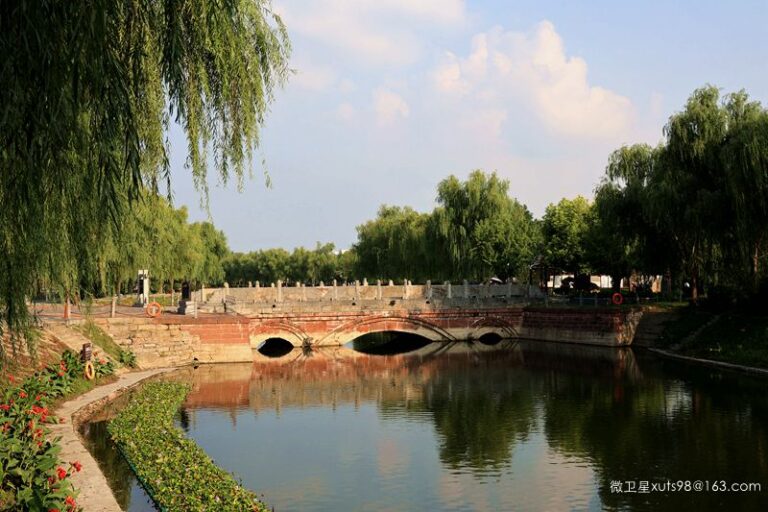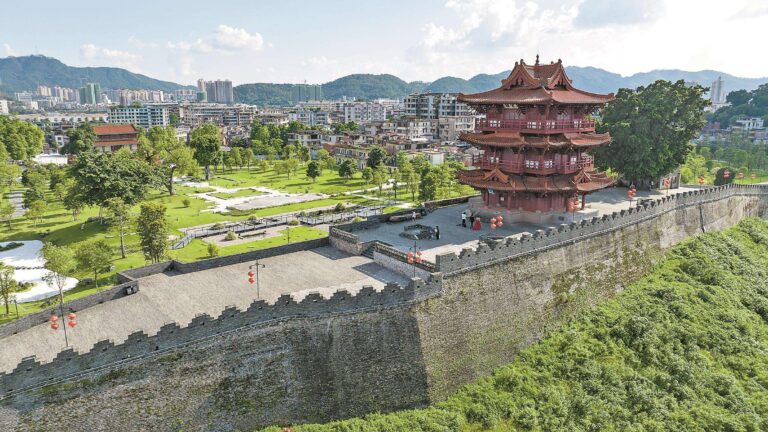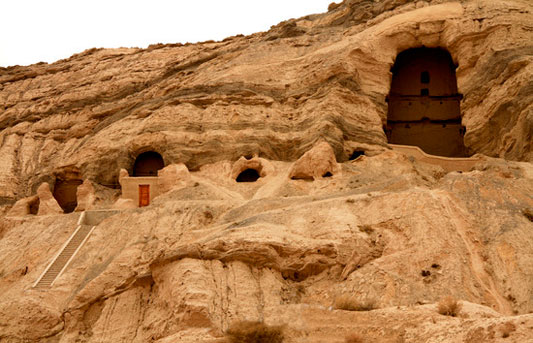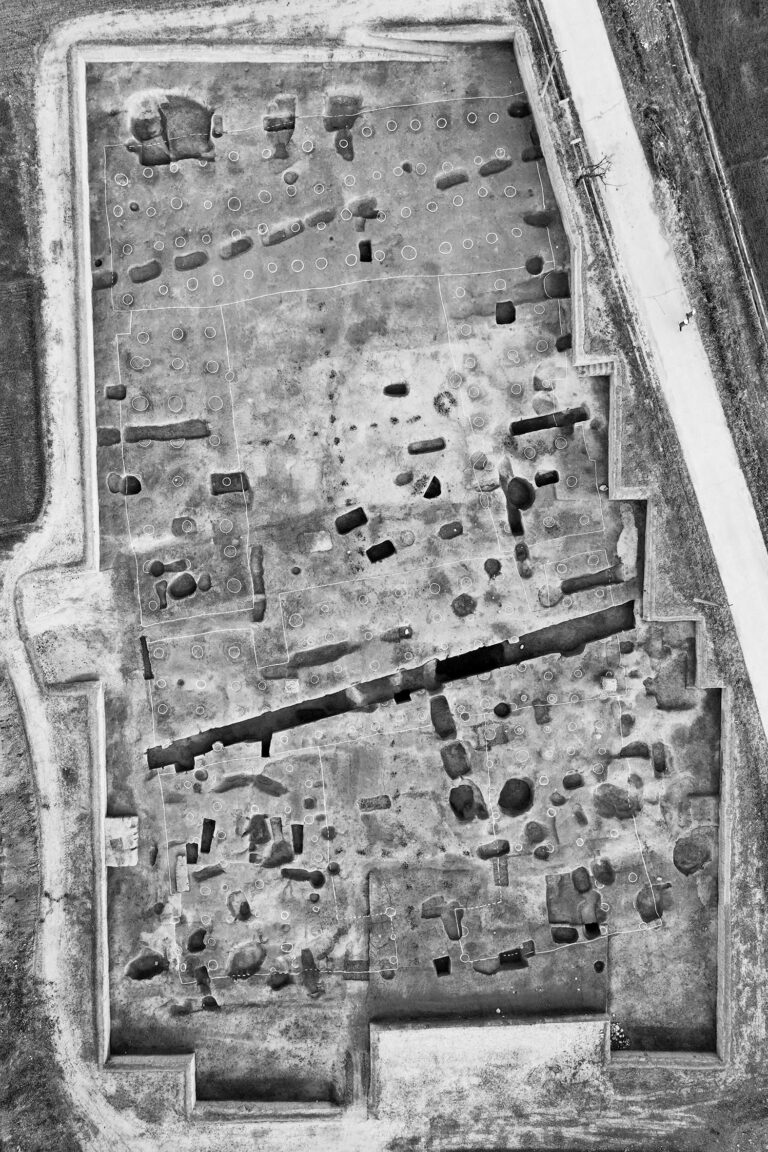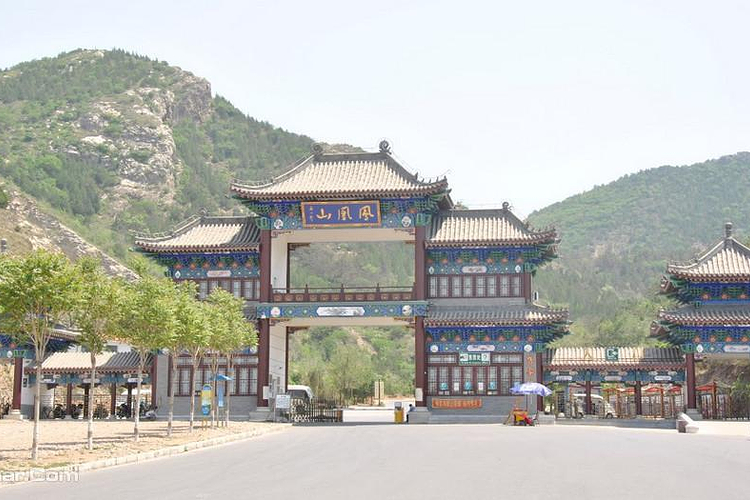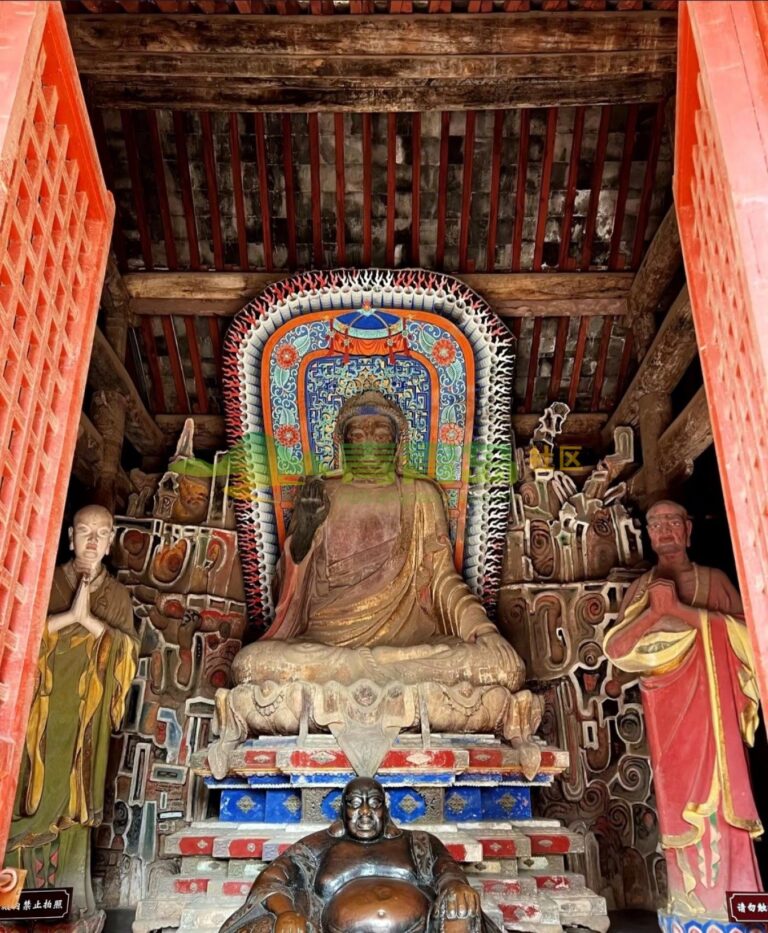Cultural Treasures of Xicheng: Your Ultimate Guide to Baiyunguan Temple
An Essential Guide to Visiting Beijing Xicheng Baiyunguan
In This Guide
- An Essential Guide to Visiting Beijing Xicheng Baiyunguan
- The Rich History of Beijing Xicheng Baiyunguan
- Main Highlights: What to See at Beijing Xicheng Baiyunguan
- Planning Your Visit: A Practical Guide
- Tickets, Hours, and Booking
- How to Get There
- Local Cuisine and Accommodation
- Frequently Asked Questions
- Final Thoughts on Your Trip
Nestled just outside the bustling heart of Beijing, the Baiyunguan—a revered Taoist temple—offers a serene escape steeped in history and spirituality. Originally established during the Tang Dynasty in 741 AD as the Tianchang Temple, this sacred site has evolved through the centuries, reflecting the rich tapestry of Chinese religious culture. Renowned as the largest Taoist monastery in Northern China, Baiyunguan is not only a testament to architectural grandeur but also a center for Taoist learning and practice.
Visitors to Baiyunguan are greeted by an impressive array of halls and pavilions, each adorned with intricate carvings and artifacts that echo the temple’s storied past. The complex is laid out along a central axis, featuring significant structures such as the Lingguan Hall and the Yuhuang Hall, which house statues of revered deities and offer insights into Taoist beliefs. Amidst the tranquil atmosphere, one can reflect on the teachings of Laozi, the founder of Taoism, whose philosophy continues to resonate within the temple walls.
Despite facing the adversities of war and modernization, Baiyunguan remains remarkably preserved, allowing visitors to experience a piece of living history. As you wander through its courtyards and admire the artistry of its architecture, you will find a place where spirituality and culture converge, making it a must-visit destination for anyone seeking to understand the depth of Chinese heritage. Whether you are a history enthusiast, a spiritual seeker, or simply in search of a quiet retreat, Baiyunguan invites you to explore the harmonious blend of past and present in one of Beijing’s most cherished sanctuaries.
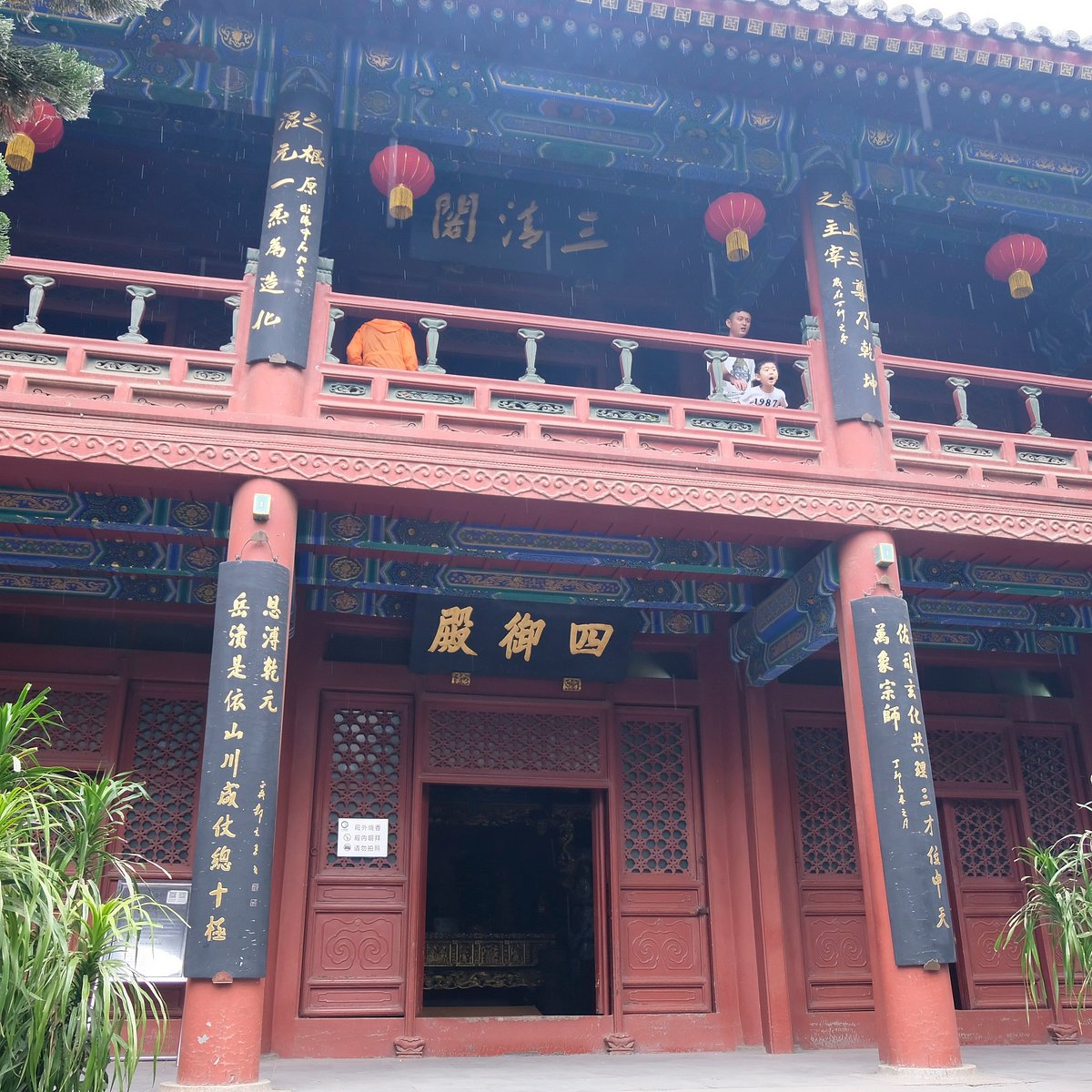
Beijing Xicheng Baiyunguan.
The Rich History of Beijing Xicheng Baiyunguan
The history of Baiyunguan, or the White Cloud Temple, is a rich tapestry woven through centuries of Chinese culture and spirituality. Nestled in the Xicheng District of Beijing, this Taoist temple has its origins in the Tang Dynasty, specifically dating back to 741 AD when it was founded as Tianchang Guan. It was initially established by Emperor Xuanzong to honor Laozi, the revered sage of Taoism.
Over the years, Baiyunguan underwent significant transformations and expansions. During the Jin Dynasty, under the reign of Emperor Shizong, the temple experienced substantial renovations and was renamed Shifang Tianchang Guan, becoming the largest Taoist monastery in northern China at that time. It was home to the esteemed text, the Da Jin Xuandu Baozang, a collection of Taoist scriptures.
However, the temple faced adversity; a devastating fire in 1160 nearly destroyed it. It was rebuilt in 1167, marking the beginning of a series of restorations that would continue for centuries. In 1202, another fire left only a statue of Laozi intact, leading to further reconstructions that collectively transformed the site into the Taiji Palace.
The temple gained prominence again during the Yuan Dynasty when the legendary Taoist master Qiu Chuji, known as Changchunzi, was invited to the court of Genghis Khan. Upon returning to Beijing, he resided at Taiji Palace, which was later renamed Changchun Guan in his honor. Following his passing, disciples constructed a shrine to house his remains, establishing Baiyunguan as the ancestral temple of the Longmen school of Taoism, a significant branch of the religion.
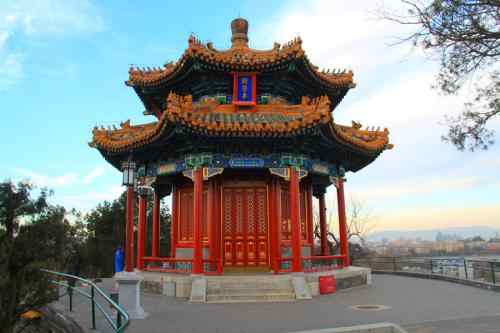
Beijing Xicheng Baiyunguan.
The current structure of Baiyunguan dates back to the Qing Dynasty, specifically a major renovation during the reign of Emperor Kangxi in 1706. The architectural style reflects traditional Chinese aesthetics, featuring ornate wooden beams, intricate stone carvings, and a layout that follows the classical design of Taoist temples, with a central axis leading visitors through various halls dedicated to different deities.
Today, Baiyunguan stands not only as a place of worship but also as a cultural and historical landmark. In 1957, it became the headquarters of the China Taoist Association, further solidifying its status in contemporary Chinese spirituality. Remarkably, Baiyunguan survived the Cultural Revolution, making it one of the few temples in Beijing that remained intact during a tumultuous period of religious suppression.
Visitors to Baiyunguan can explore its serene courtyards and vibrant halls, which house a plethora of Taoist relics, sculptures, and texts, including the complete Ming Dynasty edition of the Zheng Tong Dao Zang. It remains a vital center for Taoist practice and education, attracting both devotees and curious travelers eager to immerse themselves in the spiritual heritage of China.
Main Highlights: What to See at Beijing Xicheng Baiyunguan
Nestled just outside the Xibianmen Gate in Beijing, Baiyunguan (白云观), also known as the White Cloud Temple, is a captivating site that offers a serene escape into the rich tapestry of Taoist culture and history. This ancient temple, originally established during the Tang Dynasty in 741 AD, boasts a storied past, having undergone various reconstructions and name changes over the centuries. Here are the key highlights that make Baiyunguan a must-visit destination:
1. Architectural Marvel:
The temple complex features an impressive array of buildings that showcase traditional Chinese architectural styles from the Ming and Qing dynasties. As you wander through the six courtyards, you’ll encounter intricately carved wooden structures, tiled rooftops, and stunning stone sculptures, all arranged along a central axis that adds to the site’s majestic aura.
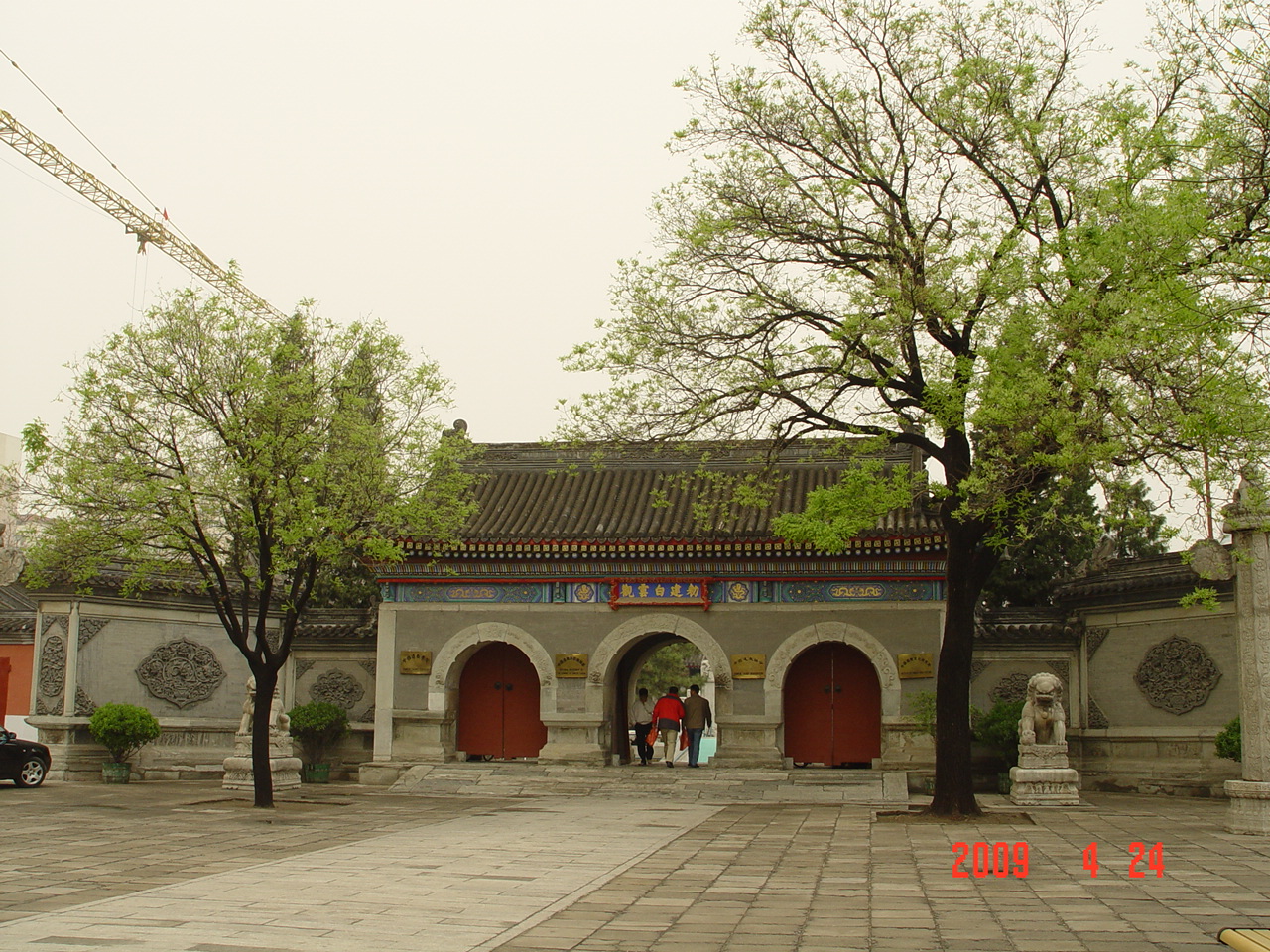
Beijing Xicheng Baiyunguan.
2. Historical Significance:
Baiyunguan is renowned as the largest Taoist temple complex in the world and is considered the ancestral home of the Quanzhen School of Taoism. This sect emphasizes a blend of meditation, alchemy, and moral teachings. The temple houses the only complete Ming edition of the “Zhengtong Daozang” (正统道藏), a significant Taoist scripture, making it a vital repository of Taoist literature and philosophy.
3. Spiritual Atmosphere:
Visitors often remark on the tranquil ambiance that envelops Baiyunguan. The temple is still an active place of worship, where locals come to pray and seek blessings. The melodic sounds of chanting can often be heard, enhancing the spiritual experience. This living tradition provides a unique opportunity for visitors to engage with the practices of Taoism firsthand.
4. Iconic Statues and Shrines:
Among the temple’s treasures is a stunning white marble statue of Laozi, the founder of Taoism, believed to date back to the Tang era. The various halls, such as the Lingguan Hall and the Yuhuang Hall, are dedicated to different deities and are adorned with vibrant murals and intricate carvings that narrate tales from Taoist mythology.
5. Cultural Events:
Baiyunguan hosts several cultural events throughout the year, including temple fairs that celebrate traditional Chinese festivals. These events feature performances, food stalls, and opportunities to experience Taoist rituals, providing an immersive glimpse into the rich cultural heritage of the region.
6. Accessibility and Visitor Information:
Conveniently located in Beijing’s Xicheng District, Baiyunguan is easily accessible via public transportation. It is open daily from early morning until late afternoon, allowing ample time for exploration. With its affordable entry fee, the temple is a budget-friendly option for travelers seeking cultural enrichment.
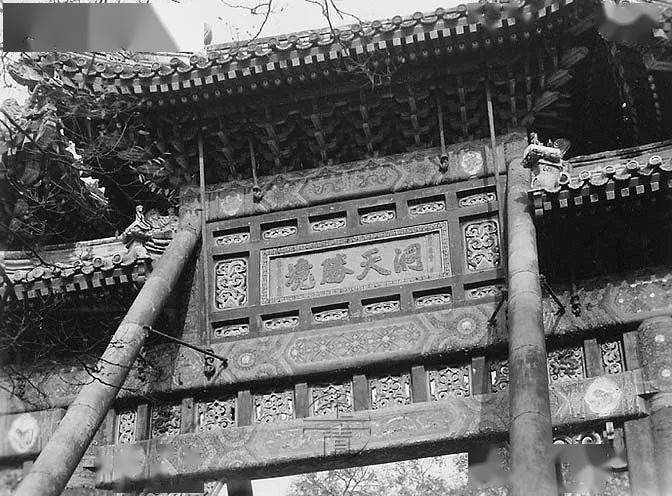
Beijing Xicheng Baiyunguan.
Visiting Baiyunguan offers not just a deep dive into Taoist beliefs but also a chance to appreciate the artistic and architectural wonders of ancient China. Whether you’re a history buff, a spiritual seeker, or simply looking for a peaceful retreat, Baiyunguan promises a memorable experience that resonates with the essence of Chinese heritage.
Planning Your Visit: A Practical Guide
When planning your visit to Baiyunguan (白云观), one of Beijing’s most significant Taoist temples, there are several practical considerations to enhance your experience. Below is a guide that covers essential information, including location, opening hours, ticket pricing, and tips for making the most of your visit.
Location and Accessibility
Baiyunguan is situated just outside the Xibianmen in the Xicheng District of Beijing. The temple is easily accessible by public transportation. The nearest subway station is Xidan (Line 4), which is about a 15-minute walk from the temple. Alternatively, you can take various bus routes that stop near Baiyunguan.
Address:
No. 9 Baiyun Guan Street, Baiyun Road, Xicheng District, Beijing, 100045, China
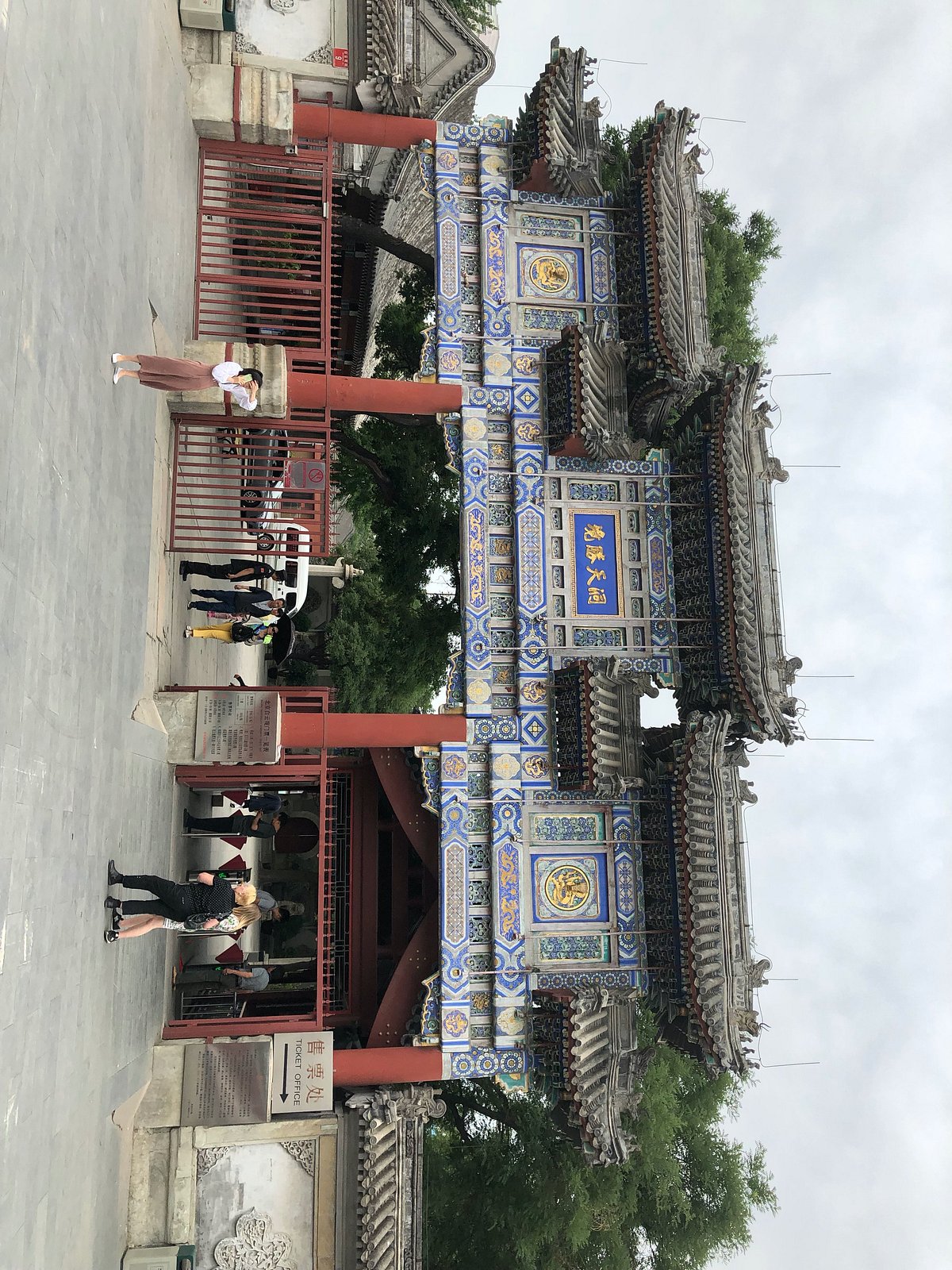
Beijing Xicheng Baiyunguan.
Opening Hours
Baiyunguan is open daily from 7:55 AM to 5:02 PM. It is advisable to arrive earlier in the day to avoid crowds and enjoy a more peaceful experience.
Admission Fees
Entry to Baiyunguan is relatively inexpensive, with tickets priced at approximately 10 RMB (around $1.50 USD). This fee grants you access to the temple complex and its historical sites.
What to Expect
Baiyunguan is renowned for its rich history and beautiful architecture, dating back to the Tang Dynasty (618-907 AD). The temple features stunning halls such as the Lingguan Hall, Yuhuang Hall, and the Grand Hall of the Three Pure Ones. Visitors can admire the intricate wooden carvings, stone sculptures, and well-preserved Taoist scriptures housed within the temple.
The temple is not only a place of worship but also a cultural hub for Taoism in China. It serves as the headquarters for the Chinese Taoist Association and offers insights into the philosophy and practices of Taoism.
Tips for Your Visit
-
Guided Tours: Consider hiring a knowledgeable guide or joining a guided tour to gain deeper insights into the temple’s history and significance. Many reviews highlight the importance of having a guide to navigate the complexities of Taoist beliefs and rituals.
-
Photography: While photography is allowed in most areas, be respectful of worshippers and avoid taking photos during ceremonies.
-
Cultural Etiquette: If you wish to participate in any rituals or offerings, familiarize yourself with the customs and practices of Taoism. Observing quietly can also be a rewarding experience.
-
Nearby Attractions: After visiting Baiyunguan, explore other nearby attractions such as the Capital Museum, Beihai Park, and the iconic Forbidden City, all of which are within a short distance.
-
Best Time to Visit: The best times to visit are during spring (April to June) and autumn (September to November) when the weather is mild, making your exploration of the temple more enjoyable.
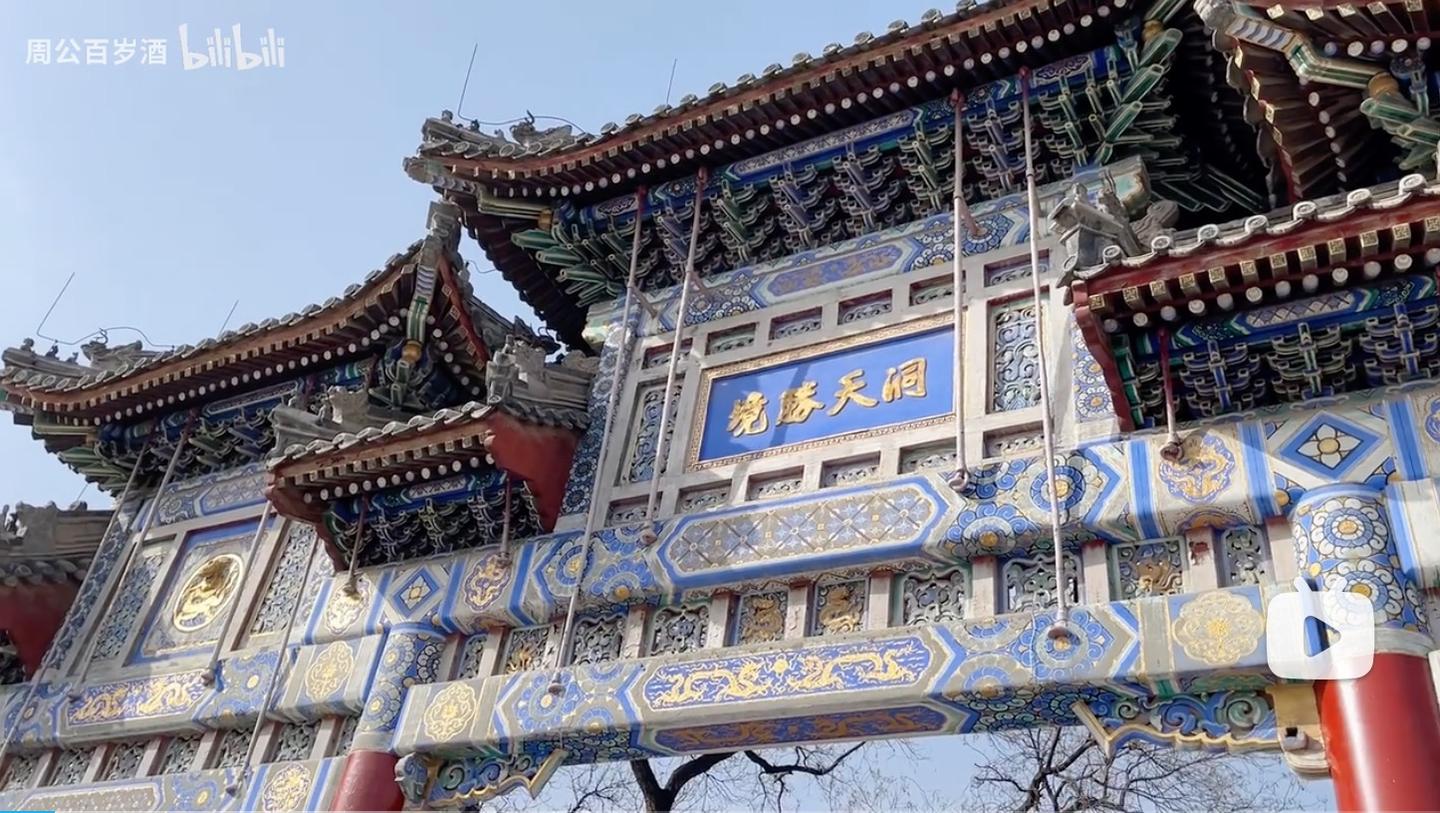
Beijing Xicheng Baiyunguan.
Dining Options
There are several dining options nearby, ranging from traditional Chinese restaurants to international cuisine. Popular spots include:
– Pamir Restaurant: Known for its Xinjiang cuisine, located just a short walk from the temple.
– Curry Lotus: An Indian restaurant that offers vegetarian options.
Conclusion
Baiyunguan is a hidden gem in Beijing that offers a unique glimpse into the spiritual and cultural richness of Taoism. With its serene atmosphere, rich history, and intricate architecture, a visit to this temple is sure to be a memorable highlight of your trip to Beijing.
Tickets, Hours, and Booking
Visiting Baiyunguan (白云观), also known as the White Cloud Temple, is an enriching experience that offers a glimpse into the spiritual and architectural heritage of Daoism in China. Located just outside the Xibianmen area in Beijing, this temple complex is revered as one of the largest Daoist monasteries in the world.
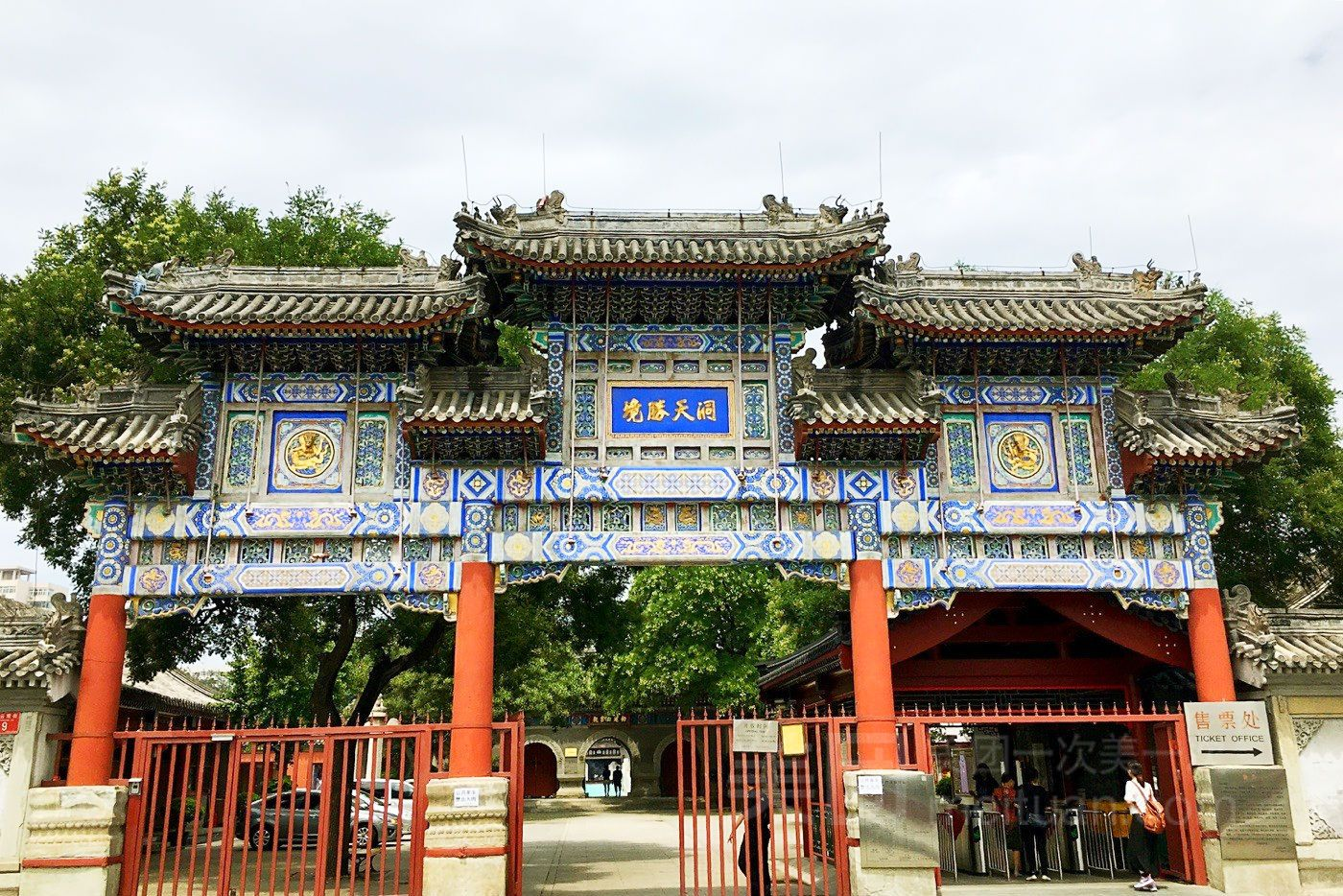
Beijing Xicheng Baiyunguan.
Ticket Information
-
Admission Fee: The ticket price for adults is approximately 10 RMB (around $1.50 USD), making it an affordable option for those eager to explore this serene site. Children and seniors may enjoy discounted rates.
-
Opening Hours: Baiyunguan is open daily from 7:55 AM to 5:02 PM. It’s advisable to arrive early in the day to fully appreciate the tranquil atmosphere and avoid crowds.
-
Payment Options: Tickets can typically be purchased at the entrance. Cash is widely accepted, but it’s recommended to check if card payments are accepted, especially during peak tourist seasons.
-
Guided Tours: While self-exploration is encouraged, guided tours are available for visitors who wish to gain deeper insights into the history and significance of the temple. These tours often include informative explanations of the various halls and artifacts within the complex.
Accessibility
Baiyunguan is conveniently located near public transport options, making it easily accessible for visitors. Public buses and the subway are viable means of reaching the temple, ensuring a hassle-free journey.
Whether you are a history enthusiast, a spiritual seeker, or simply curious about Chinese culture, Baiyunguan offers a unique opportunity to connect with the rich tapestry of Daoist traditions amidst stunning architectural beauty. Make sure to plan your visit accordingly to experience this remarkable site to its fullest!
How to Get There
Visiting Beijing Xicheng Baiyunguan (白云观) is an enriching experience, and getting there is quite manageable thanks to the city’s well-connected transportation network. Here’s how to navigate your way to this historic Taoist temple.
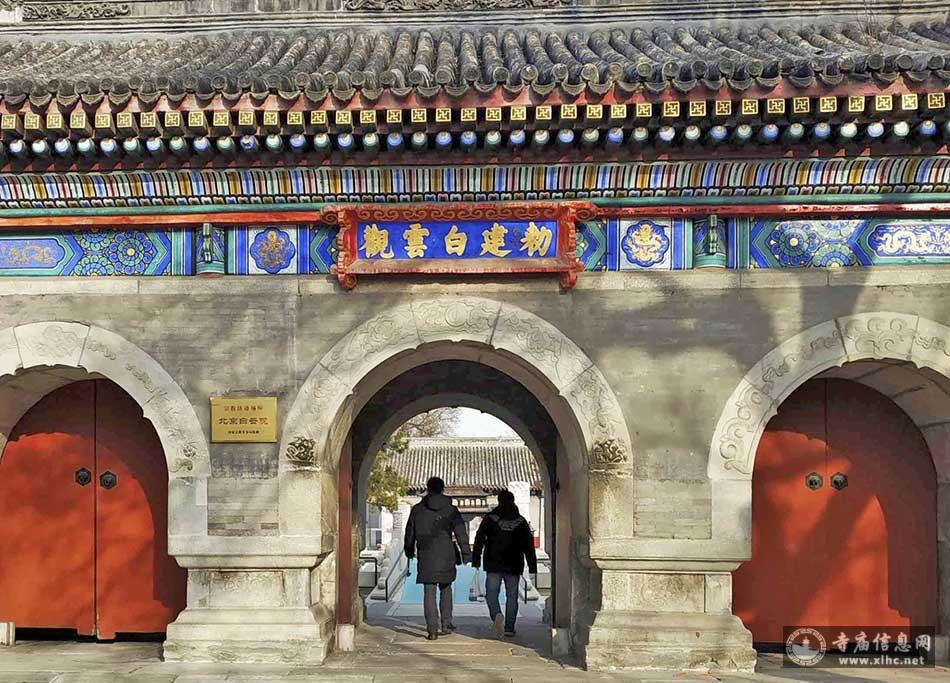
Beijing Xicheng Baiyunguan.
Getting There by Public Transportation
Subway:
The Beijing Subway is one of the most efficient ways to reach Baiyunguan. The closest subway station is Xibianmen Station (西便门站) on Line 4. From there, it’s a short walk to the temple, taking approximately 10 minutes. Follow the signs for Baiyunguan as you exit the station, and enjoy the lively atmosphere of the surrounding neighborhood as you make your way to the site.
Bus Services:
Several bus routes service the area around Baiyunguan. The following buses will get you close:
– Bus 37: Get off at the Baiyun Guan stop (白云观).
– Bus 105: Alight at the Xibianmen stop (西便门).
– Bus 609: This will also drop you near your destination, making it convenient for visitors from various parts of the city.
Traveling by Taxi
For a more direct route, consider taking a taxi. Simply tell the driver “白云观” (Baiyunguan), and they will know the destination. Taxis in Beijing are relatively affordable compared to other major cities, and the ride can take anywhere from 15 to 30 minutes depending on traffic.
Ride-Sharing Services
In addition to traditional taxis, ride-sharing apps like Didi Chuxing are widely used in Beijing. This option allows for a more comfortable ride, especially if you are traveling in a group or carrying luggage. Just make sure to input “白云观” in the app to get directions to the temple.
Walking and Biking
If you are staying close by, walking can be a delightful way to see the local area. The streets around Baiyunguan are often bustling with activity, making for an enjoyable stroll. Alternatively, Beijing has a bike-sharing system that allows you to rent bicycles to explore the city at your own pace. Look for bike stations near your accommodation or along main pedestrian routes.
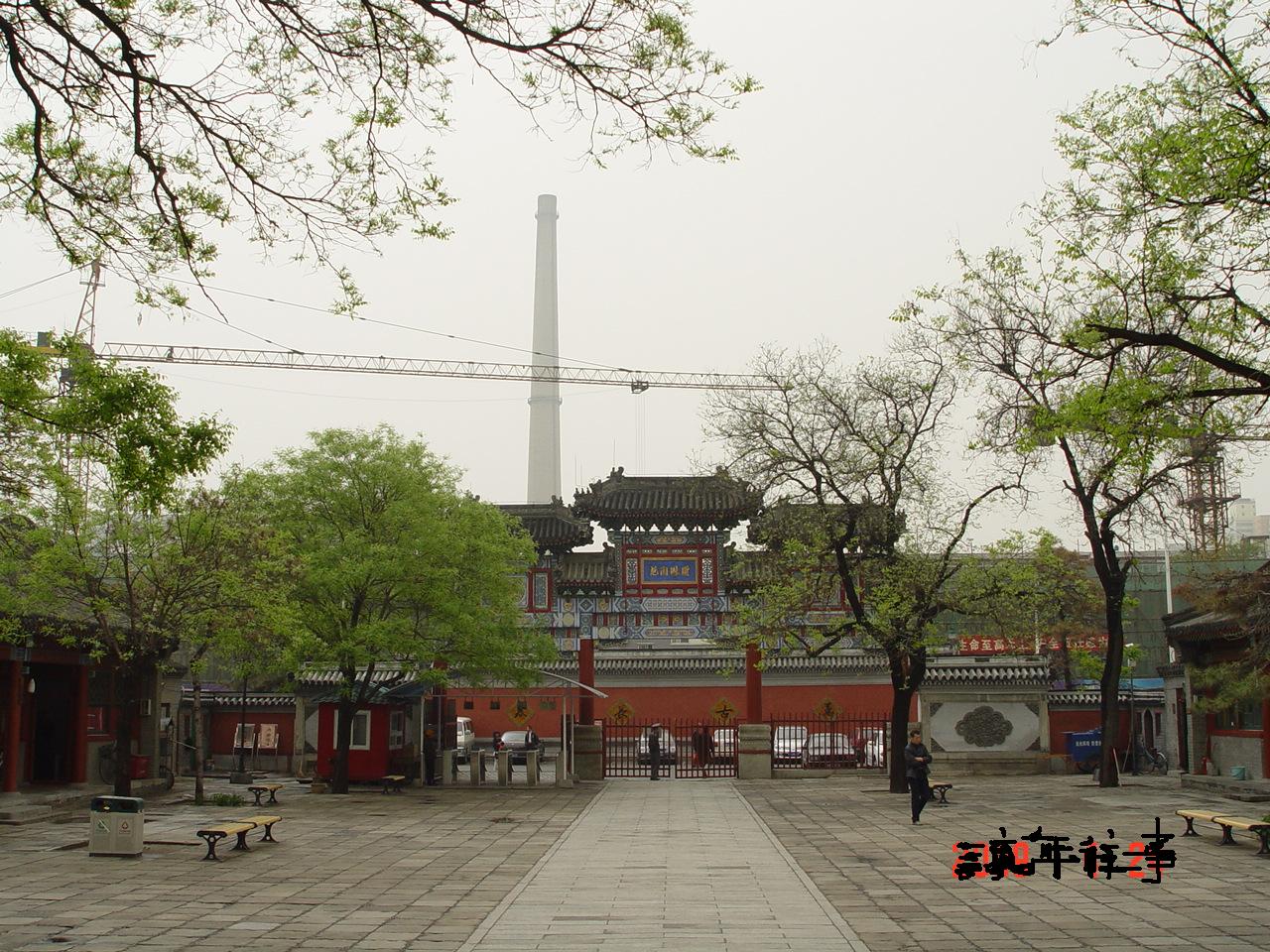
Beijing Xicheng Baiyunguan.
Accessibility
Baiyunguan is designed to be accessible, and public transportation methods mentioned above generally offer facilities for those with mobility challenges. However, be sure to check specific subway stations and buses for accessibility features prior to your visit.
Conclusion
Navigating your way to Baiyunguan is straightforward, with options ranging from the efficient subway system to comfortable taxis and bike rentals. Whether you are a local or a traveler, experiencing this serene temple is well worth the journey, providing a glimpse into the rich tapestry of Taoist culture in Beijing.
Local Cuisine and Accommodation
When exploring the spiritual and historical depths of Baiyunguan (白云观) in Beijing’s Xicheng District, visitors will find a variety of dining and accommodation options nearby that enhance the experience.
Culinary Delights
-
Pamir Restaurant (帕米尔食府)
Just a stone’s throw from Baiyunguan, this restaurant specializes in Xinjiang cuisine. Known for its hearty lamb dishes and delicious hand-pulled noodles, Pamir offers a taste of the far west of China, making it a perfect stop after a day of sightseeing. -
Maojia Cuisine VIP Building (毛家菜贵宾楼)
Located a mere 200 meters away, this restaurant serves authentic Hunan dishes that are rich in flavor and spice. Don’t miss their signature spicy fish and fragrant steamed dishes, which are favorites among locals and tourists alike. -
Chongqing Hot Pot (三个亭重庆火锅)
For those who enjoy a more interactive dining experience, this hot pot restaurant about 300 meters from Baiyunguan allows you to cook your own ingredients in a bubbling broth right at your table. It’s a delightful way to warm up on cooler days while enjoying the vibrant atmosphere. -
Scorpion Li (蝎子李)
If you’re feeling adventurous, head to Scorpion Li, famous for its exotic snacks, including scorpions and other street food delicacies. While it may not be for everyone, this unique dining experience showcases the diverse culinary landscape of Beijing. -
Imperial Palace Roast Duck (皇宫烤鸭店)
No trip to Beijing is complete without indulging in its famous Peking Duck. Located within half a kilometer from Baiyunguan, this restaurant specializes in the classic dish, offering beautifully roasted ducks served with all the traditional accompaniments.
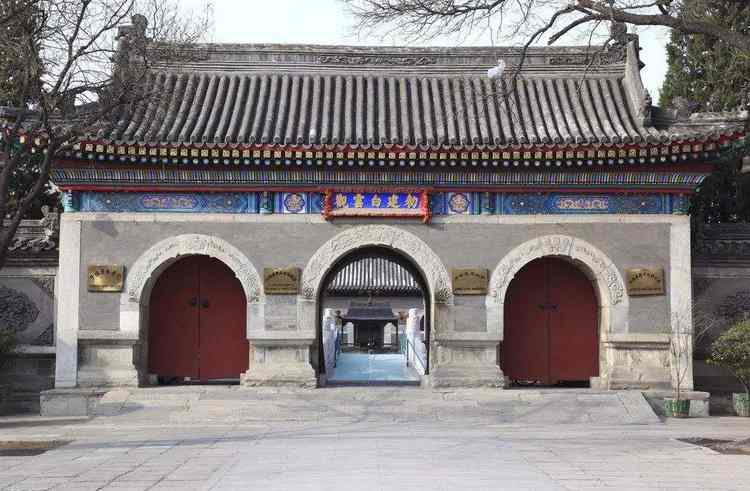
Beijing Xicheng Baiyunguan.
Accommodation Options
-
Beijing Grand Mercure (北京大酒店)
Situated within a short distance from Baiyunguan, this hotel offers modern amenities complemented by traditional Chinese decor. Guests can enjoy comfortable rooms and convenient access to local attractions, making it an excellent base for exploring the city. -
Rest Motel (Rest Motel)
For budget-conscious travelers, the Rest Motel provides basic yet comfortable accommodations at an affordable price. Its location is advantageous for easy access to public transportation and nearby dining options. -
Wanfeng Hotel (万丰酒店)
This mid-range hotel features well-appointed rooms and is known for its hospitable staff. With a focus on comfort and convenience, Wanfeng Hotel is an ideal choice for families and solo travelers alike. -
The Emperor Beijing Qianmen (北京前门皇帝酒店)
For those seeking a touch of luxury, this hotel is a bit further away but worth the journey. It combines modern comfort with traditional Chinese architecture, featuring a spa, restaurant, and easy access to Beijing’s historical sites. -
Baiyun Hotel (白云酒店)
Located nearby, this hotel caters to both business and leisure travelers. With a range of services including conference rooms and a restaurant serving local cuisine, Baiyun Hotel offers a balanced experience of work and relaxation.
Whether you’re savoring local delicacies or resting after a day of exploration, the area around Baiyunguan provides ample options to suit every traveler’s taste and budget. Enjoy your culinary and cultural journey through Beijing!
Frequently Asked Questions
Frequently Asked Questions about Beijing Xicheng Baiyunguan (白云观)
-
What is Baiyunguan and its historical significance?
Baiyunguan, also known as the White Cloud Temple, is one of the largest Taoist temples in the world, located in Beijing’s Xicheng District. Originally built in the Tang Dynasty (741 AD) as Tianchang Temple, it has undergone several reconstructions and expansions over the centuries, reflecting the rich history of Taoism in China. It is especially renowned as the headquarters of the Quanzhen School of Taoism. -
What are the opening hours for Baiyunguan?
Baiyunguan is open daily from 7:55 AM to 5:02 PM. It’s advisable to arrive early to fully explore the temple grounds and enjoy the tranquil atmosphere. -
Is there an admission fee to enter Baiyunguan?
Yes, there is a nominal entrance fee to visit Baiyunguan. This fee helps support the maintenance and preservation of the temple complex. Details about the exact amount can usually be found on-site or through local tourism websites. -
How do I get to Baiyunguan from downtown Beijing?
Baiyunguan is conveniently located just outside the Xibianmen Gate in Beijing. You can take public transportation, such as buses or the subway, to reach the location. The nearest subway station is Xibianmen Station on Line 4, followed by a short walk to the temple. -
What can visitors expect to see inside Baiyunguan?
Visitors can explore beautifully preserved halls dedicated to various Taoist deities, intricate architectural designs, and historical artifacts. Key areas include the Lingguan Hall, Yuhuang Hall, and the Qiu Zhudian, featuring detailed carvings and statues that showcase the temple’s artistic heritage. -
Are there guided tours available at Baiyunguan?
While self-guided tours are popular, hiring a knowledgeable guide can enhance your visit by providing in-depth insights into the temple’s history, architecture, and Taoist practices. Many local tour companies offer guided tours that include Baiyunguan as part of a broader itinerary. -
Can I participate in any religious activities at Baiyunguan?
Baiyunguan is an active place of worship, and visitors may observe Taoist rituals and ceremonies. While participation is generally allowed, it’s best to be respectful of local customs and practices. If you’re interested in joining a prayer or ritual, ask a temple staff member for guidance. -
Is Baiyunguan suitable for families and children?
Yes, Baiyunguan is a family-friendly destination. The serene environment, combined with fascinating cultural and historical elements, makes it an excellent spot for families to learn about Taoism and enjoy a peaceful outing. However, parents should supervise young children as they explore the temple grounds.
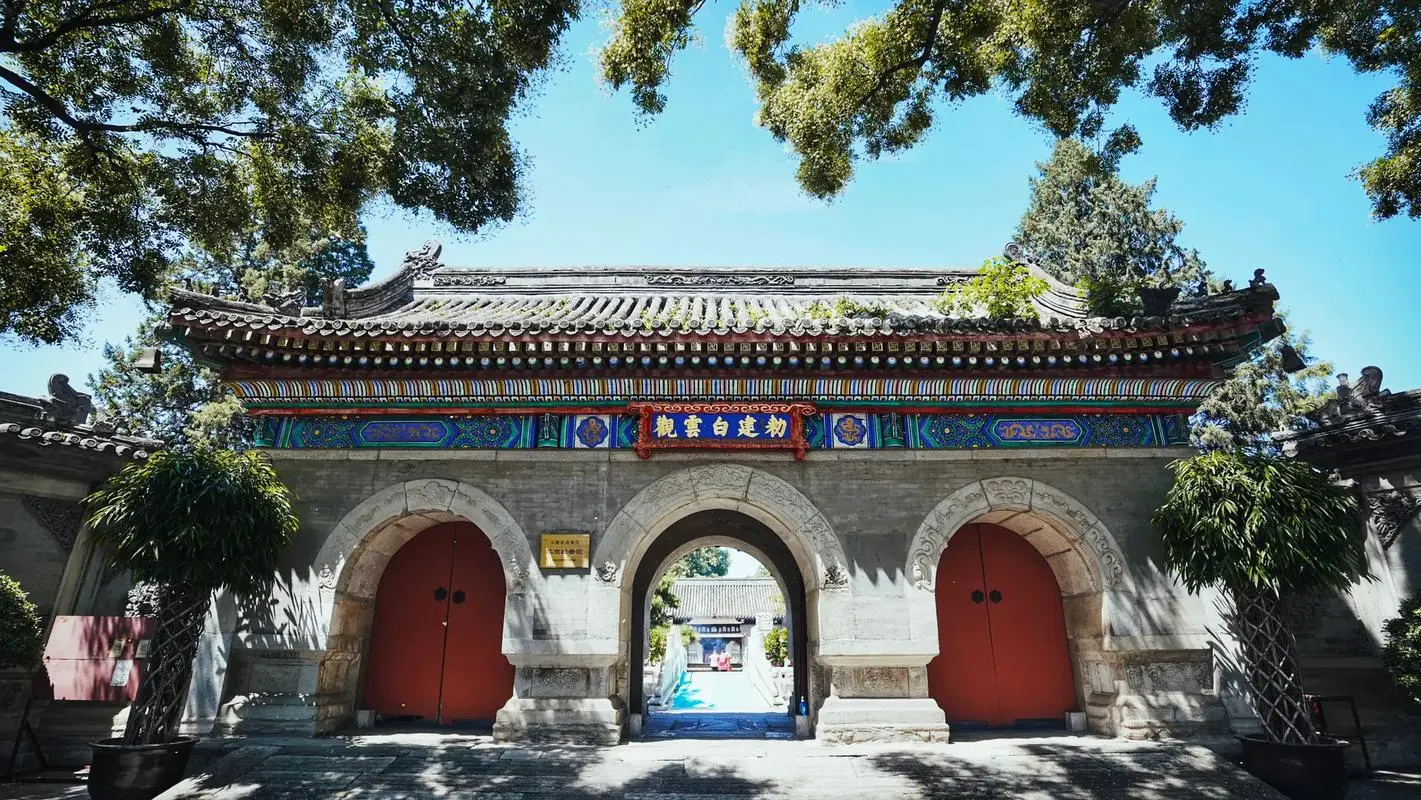
Beijing Xicheng Baiyunguan.
Final Thoughts on Your Trip
Visiting Baiyunguan, the renowned Taoist temple in Beijing, offers a unique glimpse into the rich tapestry of Chinese spirituality and history. Nestled just outside the bustling city, this serene sanctuary provides an escape from the urban chaos, inviting visitors to explore its ancient architecture and spiritual significance. The temple’s storied past, dating back to the Tang dynasty, resonates through its beautifully preserved halls and statues, showcasing the evolution of Taoist practices over centuries.
As you wander through the intricate courtyards and gaze upon the revered statues, you can appreciate the temple’s role as a center for Taoist teachings and community gatherings. Whether you’re drawn by spiritual curiosity or architectural admiration, Baiyunguan promises a peaceful retreat where history and culture intertwine.
Incorporate this remarkable site into your Beijing itinerary, and allow the tranquil atmosphere and profound heritage of Baiyunguan to inspire your journey. Embrace the opportunity to connect with a tradition that has shaped Chinese civilization for millennia, leaving you enriched and enlightened.
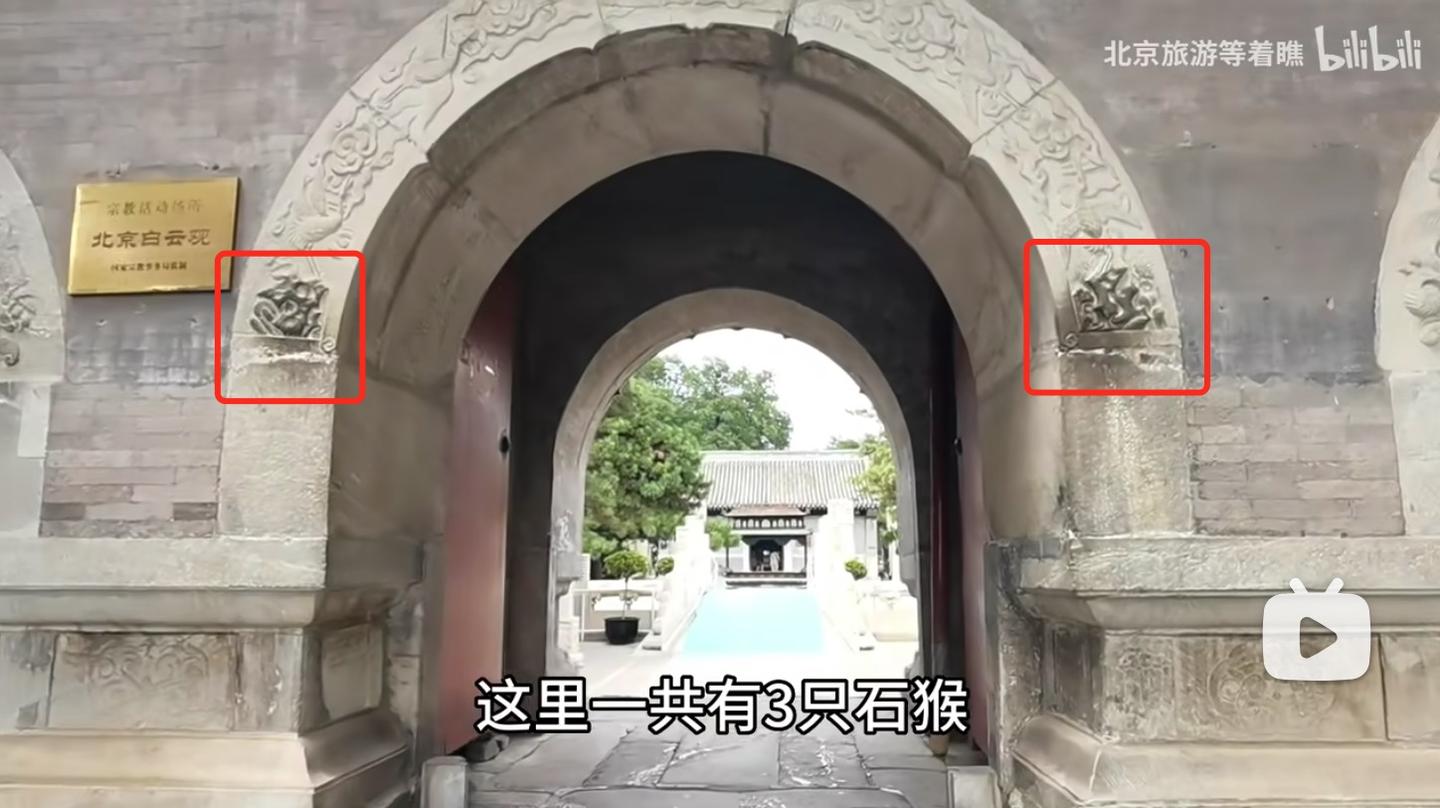
Beijing Xicheng Baiyunguan.
